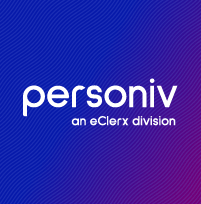Because marginalized people often experience a financial literacy gap, financial planning is a diversity, equity and inclusion issue, experts say.
LGBTQ folks in particular face a number of wealth-building challenges, thanks to a lack of institutional support and discrimination. In a 2019 survey by WNYC podcast Nancy, 35% of queer respondents said they could rely on their family or friends for financial support before coming out. Only 20% could depend on friends and family after. Overall, 52% of queer respondents said they have anxiety around finances.
And for good reason. Trans-inclusive, LGBTQ-competent healthcare is rare. The cost of living in U.S. major cities, which are more likely to be welcoming, is higher. In a 2018 Experian survey, 11% queer respondents said their LGBTQ identity led to higher costs. Additionally, only 21 states ban sexuality or gender identity housing discrimination.) Plus, 2020 analysis from the Center for American Progress, UCLA School of Law’s Williams Institute and Human Rights Campaign showed that queer people are consistently more likely to be unemployed than heterosexual, cisgender people.
LGBTQ folks on the job hunt face myriad identity-related concerns, especially if they’re trans or non-binary. Beyond IDs with the wrong gender marker, credit histories with the wrong name can cause hiccups in the job search — and cause trans candidates distress.
Typically, employers look at credit reports to reduce theft and fraud. This practice is commonplace for roles requiring financial trust such as those that require handling corporate checks or business credit cards and debit cards. Instead of their current name, a trans or non-binary person’s credit history may be under their birth name, also called a given name or a "dead name." HR professionals should keep this in mind as they prepare to make offers to trans talent and as they support employees amidst transition.
"We are encouraging transgender consumers to take the extra step — and not only contact their lenders and their creditors, but also to contact the credit bureaus, as well," Consumer Data Industry Association SVP of Public Policy and Legal Affairs Eric Ellman told HR Dive. "That's an additional measure to help make sure that the name change gets on to a credit file as quickly as possible."
From a D&I perspective, tuning into name discrepancies can reduce harm for trans and non-binary workers. Many trans people experience "gender dysphoria," which the American Psychiatric Association defines as "psychological distress that results from an incongruence between one’s sex assigned at birth and one’s gender identity." Same as misgendering, deadnaming a trans person can stoke the flames of this psychological distress.
To "deadname" a trans person is the act of referring to them by the name they no longer use. As outlined in medically reviewed resource VeryWellMind, "While technically you can deadname any person who now uses a different name, the term is used in relation to trans, gender nonconforming, and nonbinary people, and it is considered a violent act."
Deadnaming can remind trans workers of their emotional trauma, transphobic violence perpetrated against them, their dysphoria and their "lack of autonomy in identity," as stated in the resource.
Conversations about money and identity, whether they’re held with hiring team members, managers, recruits or current employees, can be uncomfortable. But it’s worth it, experts said. "Every employee has different financial needs depending on their personal goals," Matt Watson, CEO of financial benefits platform Origin, said in an email. "Employers have a unique opportunity to provide their workforce with the support, resources, and tools they need to make the smart financial decisions that will get them to these milestones."
Sophie Raseman, head of financial solutions at employee benefit startup Brightside, added that being diversity-minded is key for bolstering all employees' financial health.
"Money works its way into almost every aspect of a person's life. In order to get the most out of any financial service, a person has to be able to talk about their life. Historically, financial providers have failed to make a lot of people feel safe to open up," Raseman said over email. "So we've built a model that is, by design, non-judgmental and meets people exactly where they are and exactly as they are."






















